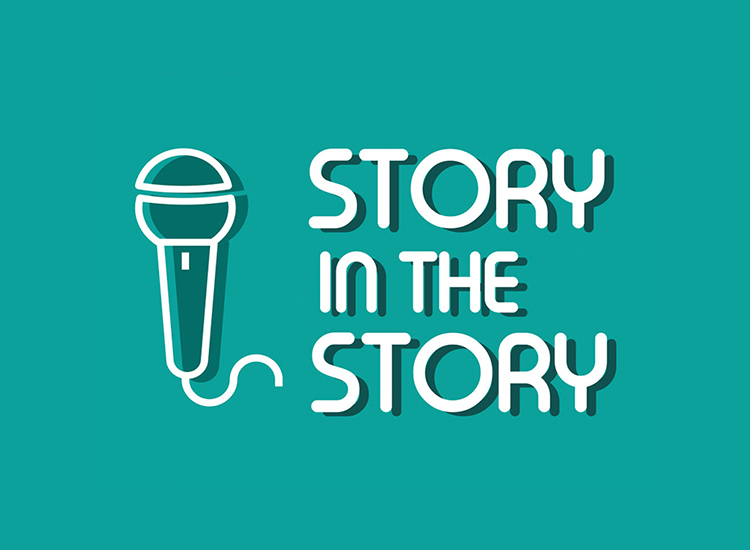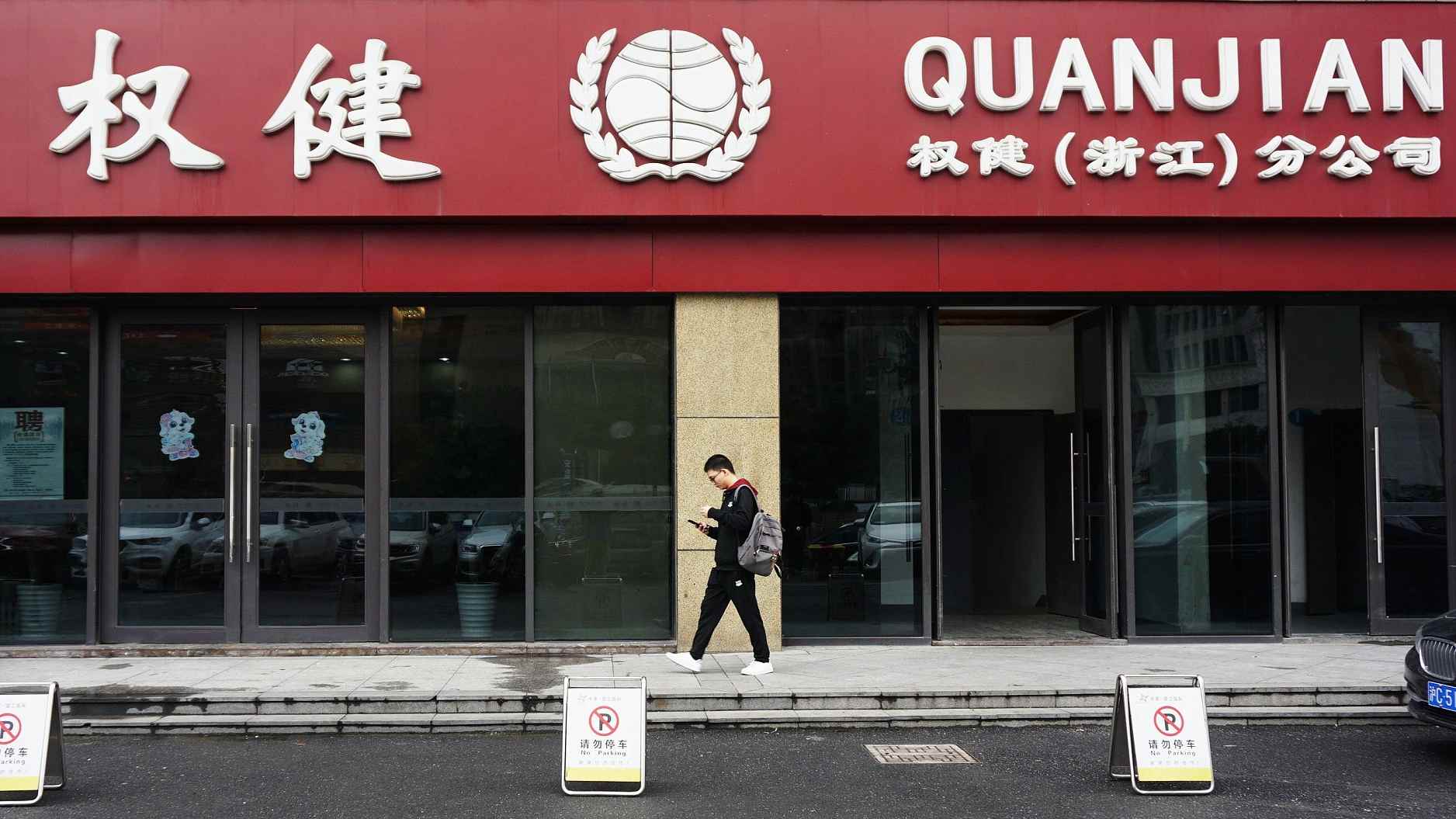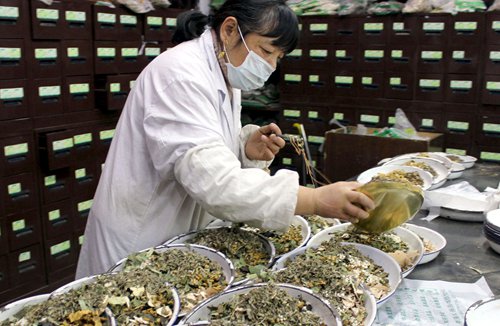
From the People's Daily app.
And this is Story in the Story.
The State Administration of Traditional Chinese Medicine has vowed to regulate phony experts who impair people's health under the cover of traditional Chinese medicine (TCM) after the actions of a health-product giant allegedly led to the death of a 7-year-old girl three years ago.
Quanjian Group, a Tianjin-based multi-billion-yuan healthcare empire, is in hot water for allegedly delaying treatment which led to the death of a 4-year-old girl, named Zhou Yang.
After persuading the girl's family to suspend medical treatment in hospital, the company gave the girl, who suffered from a malignant germ-cell tumor on her spine, the company's own anti-cancer products - a tube of plant essential oil, a powdered beverage mix and TCM - which deteriorated her health.
One of the company's signature treatments is fire therapy, which they claim originates from traditional Chinese medicine, but in practice, the treatment has caused serious burns and even death to patients.
For the sake of maintaining and developing TCM and being responsible for people's health, the administration has vowed to examine such institutes and punish the unqualified ones.
Today's Story in the Story looks at how a child’s death has sparked the regulation of TCM in China.

Tianjin-based health industry giant Quanjian, a Chinese herbal medicine maker, has been accused of making exaggerated drug claims. (Photo: CGTN)
Quanjian's products have been pulled from online marketplaces such as Alibaba's Taobao, Suning and JD.com, but it has exposed an empire with massive annual sales, built on bogus products and tainted with old lawsuits and its founder's controversial background.
The company, founded in 2004, has also been accused of illegal pyramid selling. A case in 2008 exposed a network of 5,000 people developed under the name of the company, leading to prison sentences for the scheme's organizers.
The founder of the company Shu Yuhui is reportedly suspected of having faked his educational background and a team of investigators was dispatched to the company to look into false advertising, pyramid selling, and the safety of its healthcare products.
Meantime, Shanghai's food and drug watchdog and the municipal police recently cracked a major case of producing and selling counterfeit ejiao, a gelatin made of donkey hides, while falsely using a famous brand name.
The counterfeit goods were fakes of those made by Shandong province-based Dong'e Ejiao Co, the country's top maker of a signature traditional Chinese medicine product.
"Most of those caught in Shanghai were wholesalers of the products. They were mainly from neighboring Zhejiang province and sold the counterfeit products at prices noticeably lower than the genuine ones to health product stores and TCM hospitals," said An Ti, a member of a task force in Alibaba Group's platform governance department, which assisted in the investigation with big-data technology.

An employee in a traditional Chinese medicine store in Suzhou, East China's Jiangsu Province measures herbal medicine for customers on December 22, 2018. (Photo:VCG)
Gao Xuemin, a professor at the pharmacy department of Beijing University of Chinese Medicine, said ejiao, which was dubbed a "holy medicine" long ago by traditional Chinese medicine expert Li Shizhen (1518-93), first gained popularity in the imperial family and later became known to the general public.
It is made by soaking and stewing donkey hides and refining the results into a tonic to treat health problems such as anemia and menopause-linked ailments.
Around 5,000 tonnes of ejiao is produced annually in China, according to figures released by Shandong Ejiao Trade Association.
To realize such production, around four million donkey hides are needed each year. Annual supply in China is less than 1.8 million, meaning as much as 40 percent of the products claiming to be ejiao are counterfeit, according to the figures.
TCM long ago was the only treatment available in China, but Western medicine began to dominate in modern times. In recent years, some have even called on authorities to drop TCM's status as a legally accepted treatment option.
Unlike many doctors of Western medicine, some TCM practitioners learned their skills from a master instead of going through a standard school education.
But "many do command great skill. The law allows them to get a license to practice TCM and go mainstream", says Deng Yong, a researcher of law at Beijing University of Chinese Medicine.
By clearly setting the boundaries of treatment, the law helps to eliminate fake TCM doctors who often boast they can cure all diseases, Deng said.
"That protects patients' rights and health and the reputation of TCM," he said.
Under the law, TCM products and services can be advertised only with approval from the local TCM authority.
(Produced by Nancy Yan Xu, Brian Lowe, Lance Crayon, and Chelle Wenqian Zeng. Music by: bensound.com. Text from Global Times, China Daily, and CGTN.)


